Beyond The Harbinger | home
The Eight Kings or Beasts of Revelation
Page 33 (pages 1 2 3 4 5 6 7 8 9 10 11 12 13 14 15 16 17 18 19 20 21 22 23 24 25 26 27 28 29 30 31 32 33 34 35)
A bit difficult to miss that button as all four worked. The seven heads of the leopard-bear-lion beast may well represent seven kingdoms, or kings (Strongs - kings - New Testament Greek Definition: 935 basileus {bas-il-yooce'} probably from 939 (through the notion of a foundation of power). The kingdoms of this world have been Satan's legal possession ever since Adam's fall, while Christians are not of the world, but are in the kingdom of God - today!
Matthew 16:28 Verily I say unto you, There be some standing here, which shall not taste of death, till they see the Son of man coming in his kingdom.
Revelation 1:9 I John, who also am your brother, and companion in tribulation, and in the kingdom and patience of Jesus Christ, was in the isle that is called Patmos, for the word of God, and for the testimony of Jesus Christ.
Matthew 12:28 But if I cast out devils by the Spirit of God, then the kingdom of God is come unto you.
Satan even offered his kingdoms to Jesus, but Jesus didn't take the bait.
So the leopard-bear-lion "beast" of Revelation 13 may paint a picture of the history of the physical kingdoms of John's "whole world" over ages, including the false prophet Muhammad's Islamic kingdom over the last 1400 years, while the seven headed scarlet beast mentioned later on in Revelation, seems to portray the spiritual condition of mankind, that inhabited those kingdoms over the same post-deluvial period.
On a prior page we found that Daniel defined the term "beast" as a kingdom, and that a good fit for the "beast" of Revelation 13, is the false prophet Muhammad's Islamic kingdom beast. Might we be able to find further confirmation of this suggestion in another place in the book of Revelation that can also be confirmed through the historical record? It seems we can, supported by matter of fact historical reality, through another of John's prophesies in which he details a succession of eight "kings" or "beasts".
On an earlier page we discussed an ethnographic hermeneutic, which is particularly important when considering what John was assigned to do:
Revelation 1:19 Write the things which thou hast seen, and the things which are, and the things which shall be hereafter;
Thus John prophesied of the things that were in his past, and the things which "are" to John (were present in John's first century), and the things that were to come to pass in John's future.
Revelation 17:10 And there are seven kings: five are fallen, and one is, [and] the other is not yet come; and when he cometh, he must continue a short space. 11 And the beast that was, and is not, even he is the eighth, and is of the seven, and goeth into perdition.
Considering John's assignment, as we look back through history we can recognize that the sixth king or the one that "is" in power as John wrote, was the Roman Empire. In these verses we find the term "kings" and "beast" are used synonymously for these eight figures, and if we chose to we could easily assign the most significant king, to each of the empires in its turn.
The succession of kingdoms detailed by the historical record is so widely recognized that it should come as no surprise that at least tens of millions of Christians understand the first six "kings" or "beasts" of John's prophecy, to have been the successive kingdoms of Egypt, Assyria, Babylon, Medo-Persia, Greece and the Roman Empire. Even in quotes "Egypt, Assyria, Babylon, Medo-Persia, Greece" produces 92,000 results (about 57,000 results if Rome is included because some use the term "Rome" and others "Roman empire" etc.).
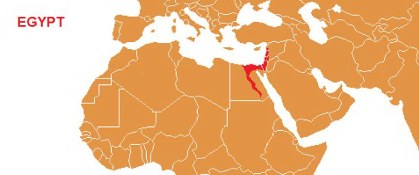
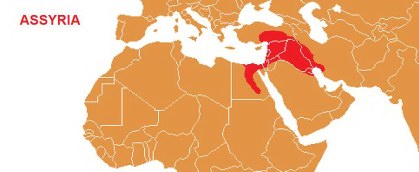
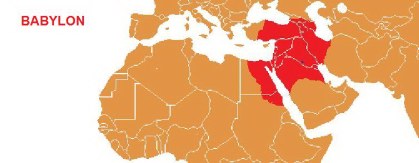
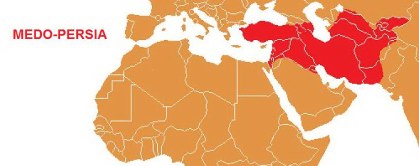
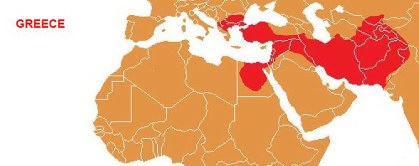
The previous five fallen, followed by the "one is", of the Roman Empire of John's day.

When we consider the historical record, what kingdom succeeded the Roman Empire, that had "not yet come" when John penned the verse in the first century? What kingdom eventually conquered the Roman Empire of John's "whole world"?